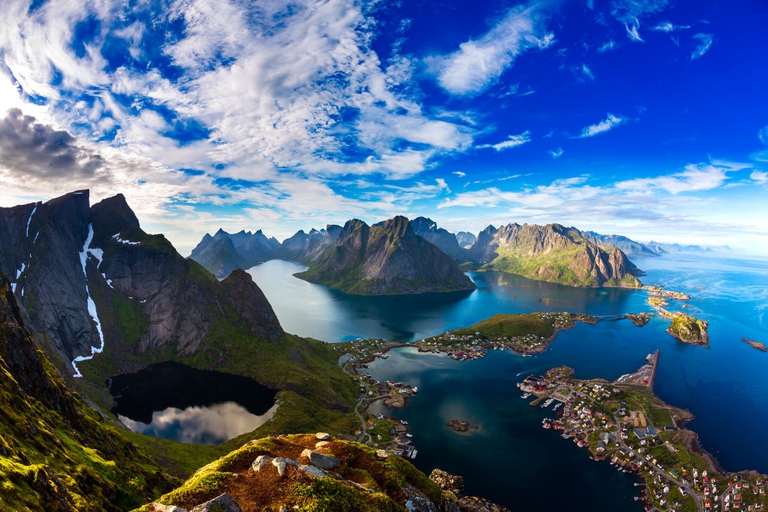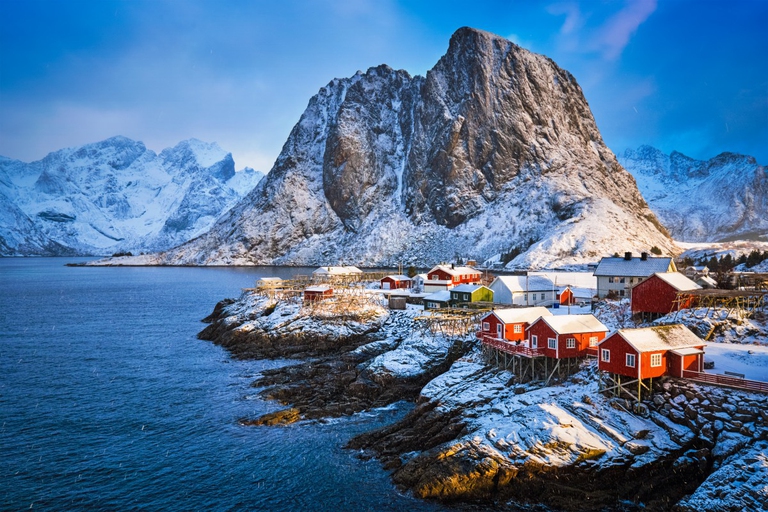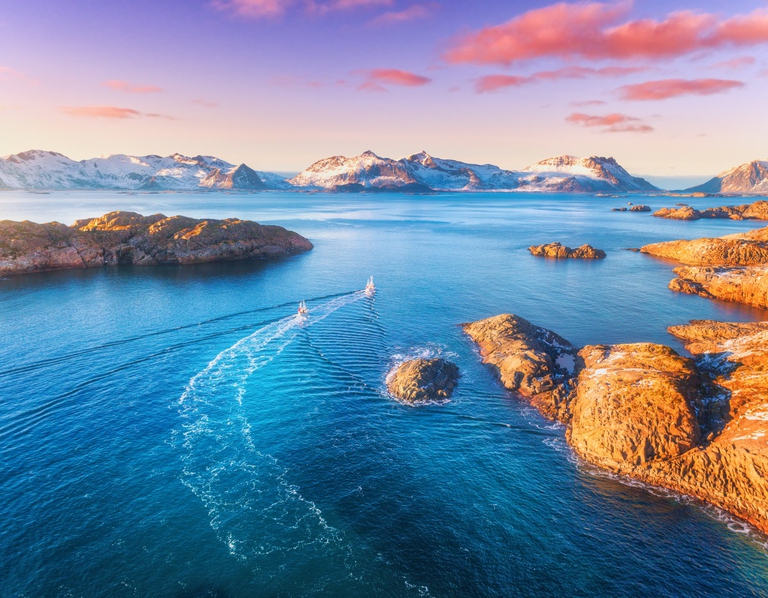
A group of experts in Tokyo suggested pouring radioactive water from Fukushima into the open sea. A marine biochemist explains the consequences of this absurd decision.
Le acque artiche e gli ecosistemi unici delle isole Lofoten, in Norvegia, sono salvi dal petrolio. Potrebbe essere vietato in modo permanente grazie al voto del partito laburista che si è opposto alle esplorazioni nella zona.
One of the world’s main fossil fuels producers is falling out of love with oil. It’s Norway, which has just taken a step forward towards the protection of the Arctic waters of the Lofoten, Vesteralen and Senja islands, one of the country’s areas remained untouched by extraction activities and home to unique ecosystems.
Norway’s Labour Party announced on 7 April that it will withdraw support to oil explorations and drilling off the coasts of the Lofoten, Vesteralen e Senja islands – an area known as LoVeSe – in the Norwegian Arctic. Despite being at the opposition to the government (composed by a coalition of parties, among which are some historically against oil), the Labour Party is the largest political party in the Parliament. This means their vote gives a parliamentary majority to the decision of not opening up the area to new oil activities and going on with the creation of a permanent.
The Lofoten islands, with their fjords that create stunning landscapes made of blue waters towered by majestic mountains home to coloured fishing villages, are considered a unique ecosystem. Their waters give shelter and attract one of the world’s highest concentrations of cetaceans, while its peaks are one of Europe’s largest nesting areas for sea birds. Alongside the biodiversity found nowhere else on the Planet, the Lofoten islands appear to be rich in oil sediments: 1 to 3 billion barrels of crude oil are estimated to be hold in the archipelago’s pristine waters.
This is why the decision of the Labour Party, which has always been a great supporter of the oil and gas industry, represents a decisive shift for the future of the country. “The whole industry is surprised and disappointed,” said Karl Eirik Schjott-Pedersen, head of the Norwegian Oil and Gas Association. “It doesn’t provide the predictability we depend on”. According to energy company Equinor – which has recently presented a plan to drill the pristine waters of the Great Australian Bight – the Lofoten is a key area for the country’s oil industry to keep its production stable, which allows it to be one of the world’s major oil exporters. This decision, moreover, comes right after the announcement that the Norwegian wealth fund, the world’s largest, is no longer investing in oil and gas, but in renewable sources instead.
The Labour Party supports the development of other activities in these marine areas, such as fishing, tourism and renewable sources.Jonas Gahr Støre, leader of the Labour Party
The Lofoten Islands are protected from oil activities since 2001 thanks to a series of temporary bans granted by the executives and reached thanks to the support of local communities, governments and small fishing activities. Every time a ban expired, the threat of oil explorations would be looming over.
For this reason the #OilFreeLofoten campaign has been launched by NGO Sea Legacy (founded by nature photographers Paul Nicklen and Cristina Mittermeier) in collaboration with Friends of the Earth Norway, Folkeaksjonen and Labour Party Youth, to urge the Parliament to protect the area from oil, permanently.
When people look into the eye of an orca and find out its very existence is under threat due to the greed of oil and getting more oil, it wakes people up. Paul Nicklen, nature photographer
More than 50,000 people joined the movement and signed the petition calling on the government to keep fossil fuels out of the archipelago, demonstrating how this industry is losing the popularity it had during Norway’s oil age. Also, it shows how the country – one of the few in the world that could meet the objectives of being 100 per cent renewable and cutting its emissions to zero – can no longer overlook the issue and must move on from its dirty past and start tracing cleaner lines for its future.
Siamo anche su WhatsApp. Segui il canale ufficiale LifeGate per restare aggiornata, aggiornato sulle ultime notizie e sulle nostre attività.
![]()
Quest'opera è distribuita con Licenza Creative Commons Attribuzione - Non commerciale - Non opere derivate 4.0 Internazionale.
A group of experts in Tokyo suggested pouring radioactive water from Fukushima into the open sea. A marine biochemist explains the consequences of this absurd decision.
The decline in grey and humpback whales in the Pacific and Atlantic Oceans has been traced to food shortages caused by rising ocean temperatures.
The United Nations has launched a major international alliance for ocean science, undertaking a mission close to all our hearts.
The cargo ship that ran aground off the coast of Mauritius on 25 July, causing incalculable damage, has split in two and its captain has been arrested.
The largest coral reef in the world is severely threatened by climate change, but researchers are developing strategies that could contribute to saving the Great Barrier Reef.
Seychelles have extended its marine protected area, which now covers over 400,000 square kilometres, an area larger than Germany.
Norwegian oil giant Equinor had pulled out of drilling for oil in the Great Australian Bight, one of the country’s most uncontaminated areas. A victory for activists and surfers who are now campaigning for the area to be protected forever.
30 per cent of the planet needs to be protected to stop precipitous species decline. The UN has set out its aims for the the COP15 on biodiversity scheduled for Kunming, China in October.
Ocean warming has risen to record highs over the last five years: just in 2019 the heat released into the world’s oceans was equivalent to that of 5-6 atomic bombs per second. The culprit, no doubt, is climate change.










